Scientific Name: Melaleuca Alternifolia
Origin: Australia
Plant Part: Leaves
Scent: Woody, Earthy, Medical, Fresh, and Herbaceous
Color: Clear with a Slight yellow Tinge
Consistency: Thin
Perfumery Note: Top - Middle
Initial Aroma Strength: Medium
Extraction Method: Steam Distilled
Tea Tree Essential Oil: Uses, Benefits, and Blends
Not overly surprising when you consider this versatile oil can help fight bacteria, odors, AND inflammation, Tea Tree Essential Oil is famous around the world. Try adding it to hair and skin products to cut down on oily buildup, or use it in a diffuser to help improve the air quality in your home or office. VINEVIDA’s Tea Tree Oil offers up a vivacious and herbaceous aroma that is sure to be a crowd-pleaser whichever way you decide to use it.
The commercial use of tea tree oil dates back to the 1920s. This was when two Australian scientists, Penfold and Morrison, published an article on the oil’s economic potential. The tea tree plant—or the Melaleuca Alternifolia—is native to Australia, and supposedly gets its more common name from the explorer James Cook, who used the leaves to make an infusion for his tea. The oil contains many different constituents and its composition will change upon exposure to the air, due to the process of oxidization.
Tea Tree Essential Oil Benefits: Component Breakdown
- Terpinen-4-ol: Terpinen-4-ol is a liquid terpineol that ranges from clear to pale yellow in color. Its odor is earthy and musty, and the component shows promise in terms of its effectiveness as an anticancer agent.
- 1,8 Cineole: 1,8 cineole is more commonly known as eucalyptol, and is a naturally occurring monoterpene ether. It is very aromatic, smelling strongly of mint. It is also a very common fragrance and flavoring agent, which you can also find in many cosmetics and mouthwashes. The tea tree essential oil benefits are acquired with the help of this great chemical component.
- Gamma-Terpinene: Gamma-terpinene is one of four monoterpenes, and its citrusy aroma is why you will often see it in food, beverages, cosmetics, perfumes, and even confectionaries. Gamma-terpinene also displays significant antioxidant activity.
- a-Terpinene: a-Terpinene is a monoterpene with a mild aroma, similar to turpentine. It is a common additive in the fragrances of industrial products.
- a-Terpineol: a-Terpineol is one of four monoterpenoids. A terpenoid is a modified terpene, in this case with the addition of an alcohol group. It smells similar to the scent of lilacs, and you can find it in many different cosmetics and perfumes. Many skin-related Tea Tree Essential Oil benefits come from this component.
- p-Cymene: A colorless, liquid monoterpene, p-Cymene is a common flavoring additive. It also absorbs well through the skin, and research suggests it may be effective as an anti-inflammatory.
- a-Pinene: An isomer of pinene, as its name indicates, this terpene smells strongly of pine. a-Pinene is also very bioavailable, and researchers are looking into how it might play a role in future drug applications.
Tea Tree Essential Oil Uses: For Wholesale Purposes
In 2017, the market value for Tea Tree Oil reached over USD $38 million. Forecasts estimate that by 2025 its market share will reach USD $59.5 million. Currently, Australia is responsible for 80% of Tea Tree Oil production, though China is also becoming a major producer. However, the oil coming out of China contains byproducts, which make it less desirable for consumers. There are many commercial uses for Tea Tree, including cosmetic and pharmaceutical, in addition to its most common use, which is as an antibacterial agent.
Face Care Products
Skincare comes first on the list of Tea Tree Essential Oil uses. Multiple studies show promising indications that tea tree essential oil benefits may include its ability to treat acne. Other anecdotal claims include the positive effect Tea Tree can have on dry, oily, and itchy skin. It is a common ingredient in many commercial skincare products, including facial cleansers and toners, as well as lotions, creams, and spot treatments. If you choose to use Tea Tree for its skin-enhancing properties, it is important to note that you must first dilute it with a carrier oil. Keep reading to find out more details on the precautions you should take when using Tea Tree Oil topically.
Hair Care Products
Some anecdotal evidence indicates that the use of diluted Tea Tree Oil can help to reduce the buildup of hair care products on the scalp. When these products build up it makes it harder to keep the skin moisturized, which can lead to dry skin and itching. Additionally, Tea Tree Oil’s antibacterial properties may be able to help fight dandruff, which can also cause discomfort.
Antibacterial Products
Tea Tree Oil is widely known for its antimicrobial and antiseptic properties, though more research is necessary to confirm its clinical use. You can find Tea Tree Oil in many disinfectants—both for cleaning and wound-healing purposes—as well as in different brands of air purifiers for boats, homes, and RV’s.
Soap Making
 Soapmaking is one of the most significant ones from the Tea Tree Essential Oil uses list. Tea Tree Oil is very popular with soap-making enthusiasts, as its antimicrobial properties help to combat bacteria, including those that cause body odor. In addition to its reputed effects on the skin, Tea Tree also offers up a fresh, invigorating scent, perfect for the shower!
Soapmaking is one of the most significant ones from the Tea Tree Essential Oil uses list. Tea Tree Oil is very popular with soap-making enthusiasts, as its antimicrobial properties help to combat bacteria, including those that cause body odor. In addition to its reputed effects on the skin, Tea Tree also offers up a fresh, invigorating scent, perfect for the shower!
What Blends Well with Tea Tree Essential Oil?
Tea Tree Oil’s fresh, herbaceous aroma pairs well with many other oils, particularly in the mint and citrus families. Top contenders are Peppermint, Lemon, Orange, Eucalyptus, Lavender, and Rosemary Oils.
Precautions
Tea Tree Oil is very toxic to both animals and humans when it is ingested. Several people suffer from skin allergies to Tea Tree. If you plan to use this oil topically, you will need to dilute it with a Carrier Oil first. Start with 1-2 drops of Tea Tree Oil, mixing it with 12 drops of the carrier of your choice. Put a small amount on a bandaid, and fasten it to the skin for 24 hours. If there is no sign of irritation you can continue with use.
Tea Tree is contraindicated for pregnant women, infants, and small children. Always check with a doctor first before using essential oils if you suffer from any underlying conditions.
Flash Point
57 °C
Conclusion
Tea Tree Oil is one of the most famous essential oils around, due to its versatility. It is easy to recognize due to its trademark camphorous scent, similar to that of Eucalyptus with a hint of mint. While Tea Tree Oil has many uses, it can also be very toxic. Ensure to keep it well away from pets and children, and never ingest it or apply it directly to the skin.

- Reviews
- Questions


Fantastic quality! I'll buy this over and over for my business. Love VineVida oils!

Best I've used
I use this for everything. From cuts to brushing teeth. It's the only one I've found that doesn't taste or smell like gasoline. It's the only one I will buy and it's a great price.
You may also like
Recently viewed

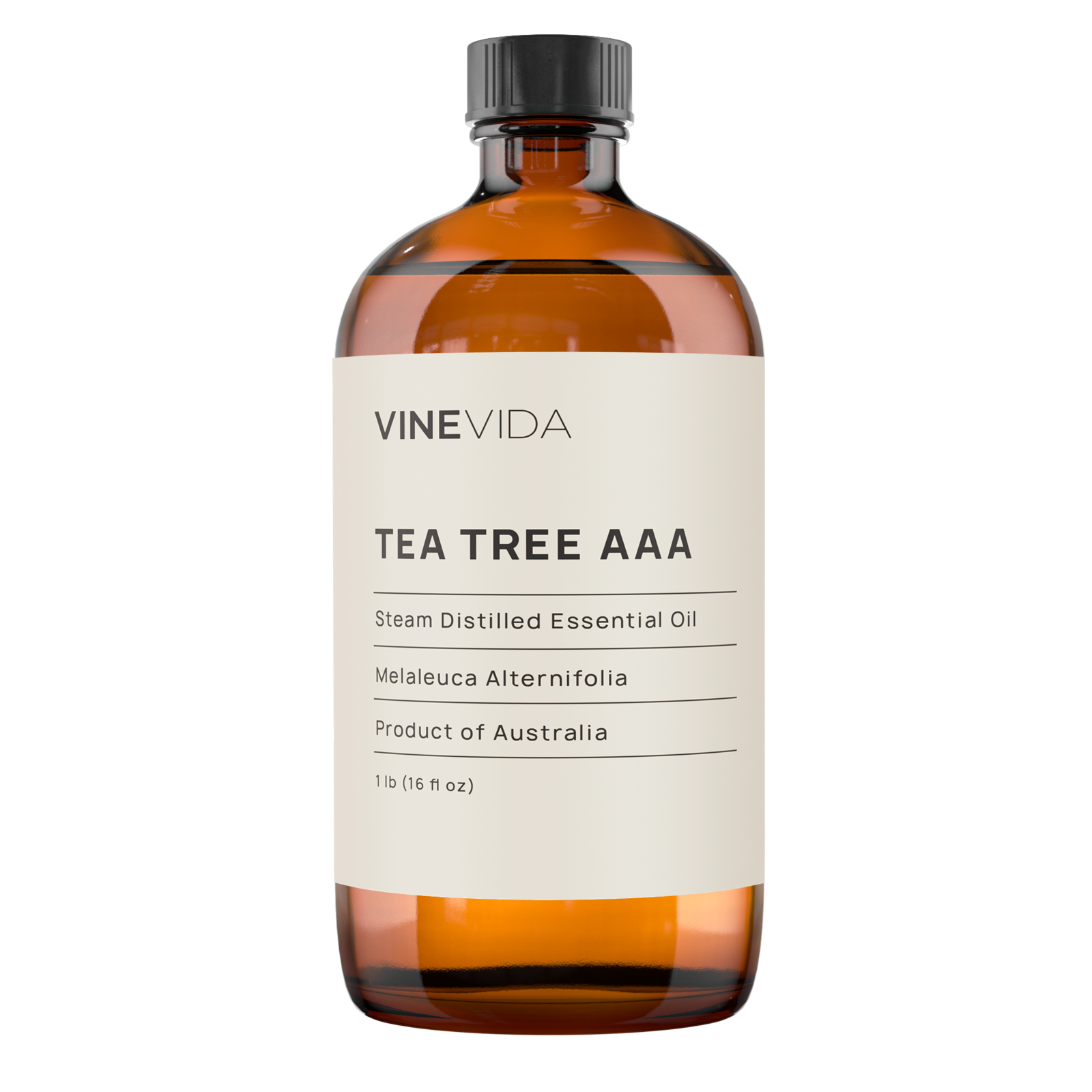
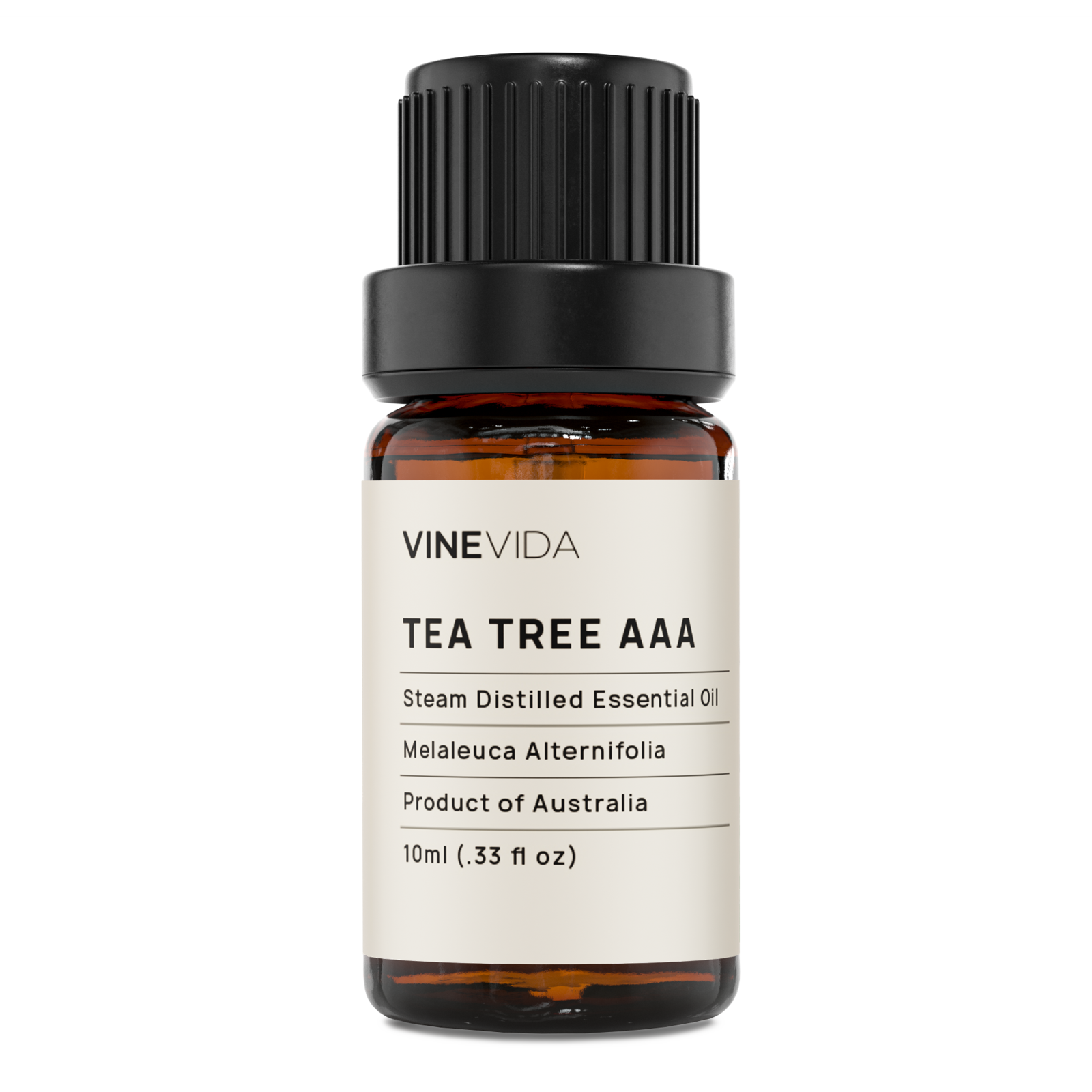
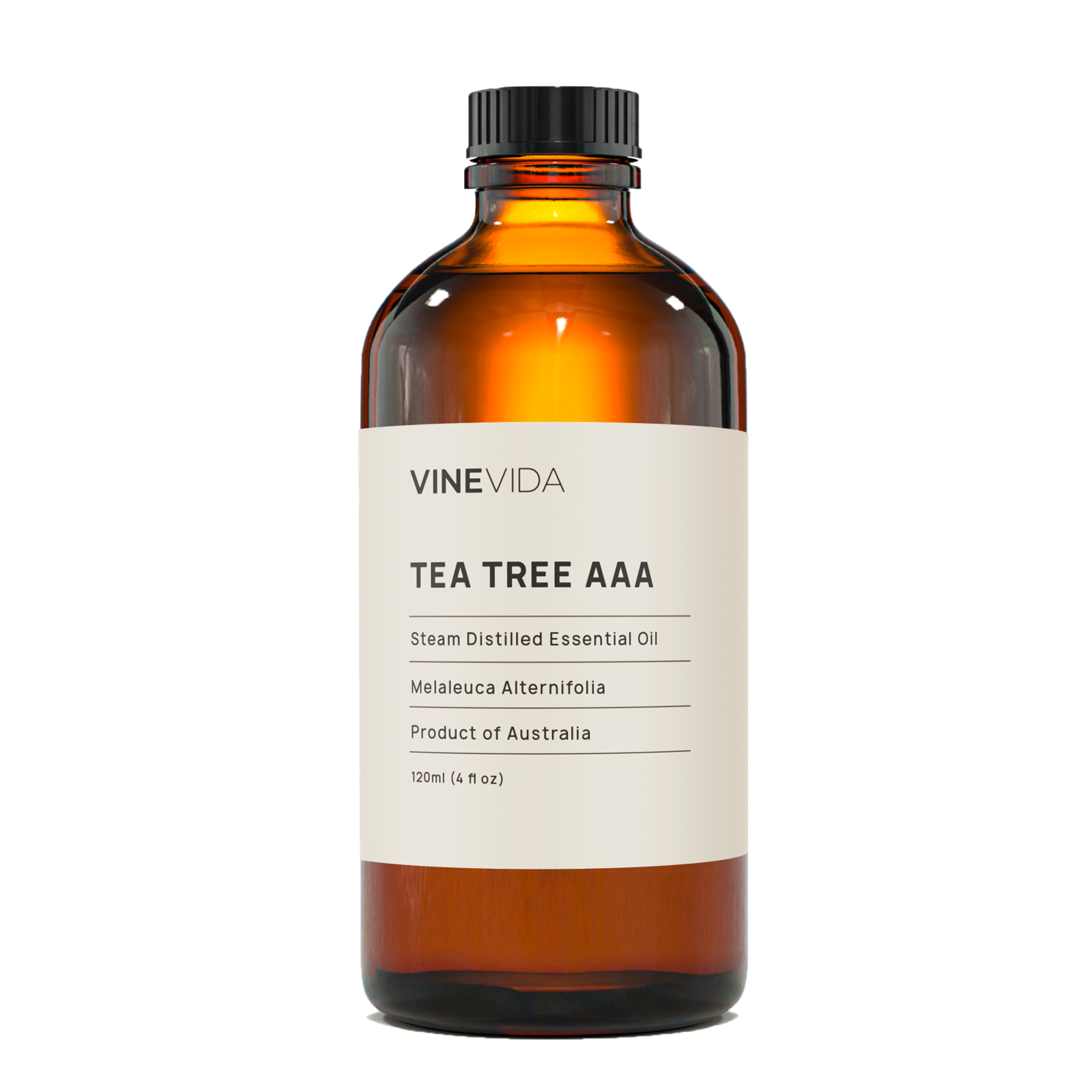
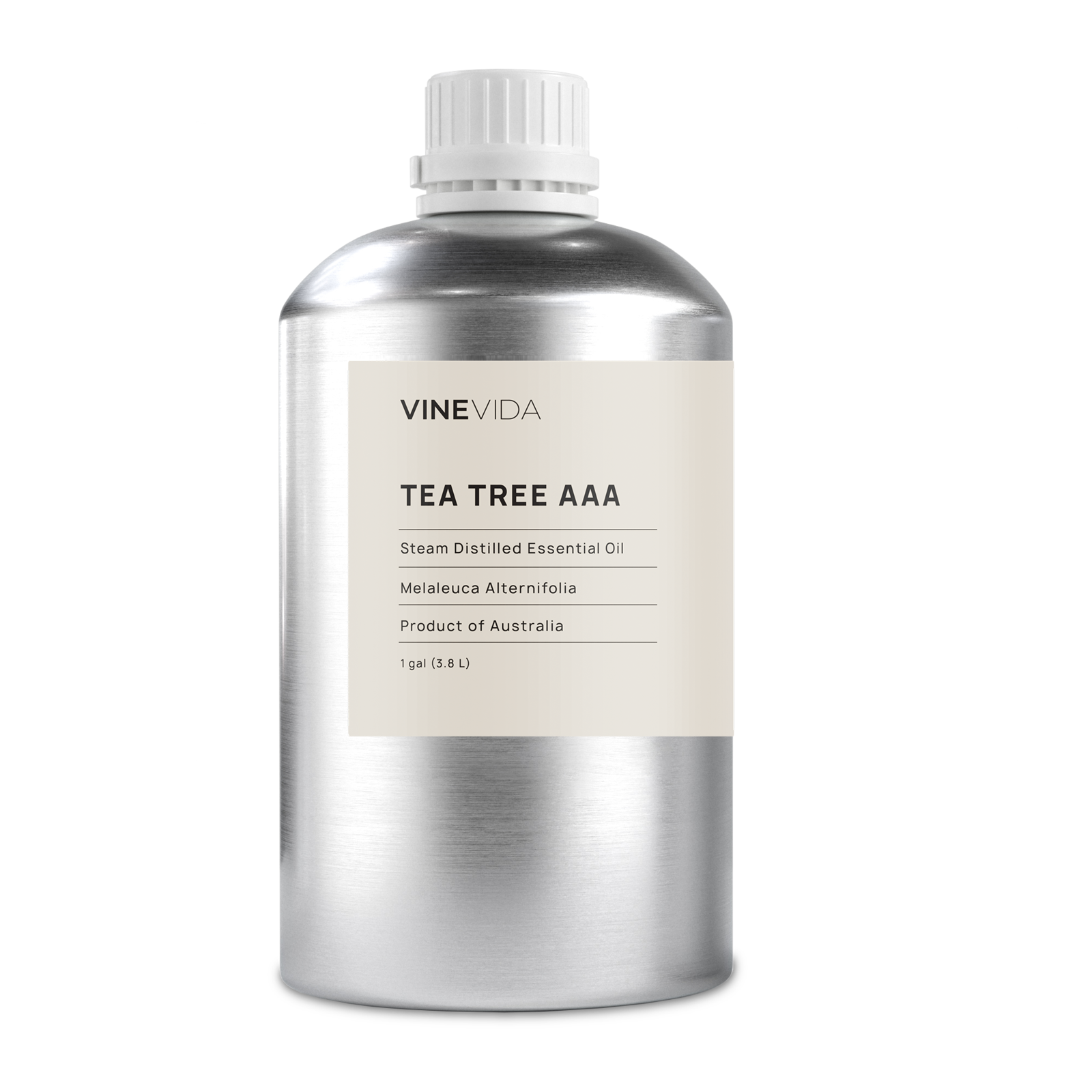
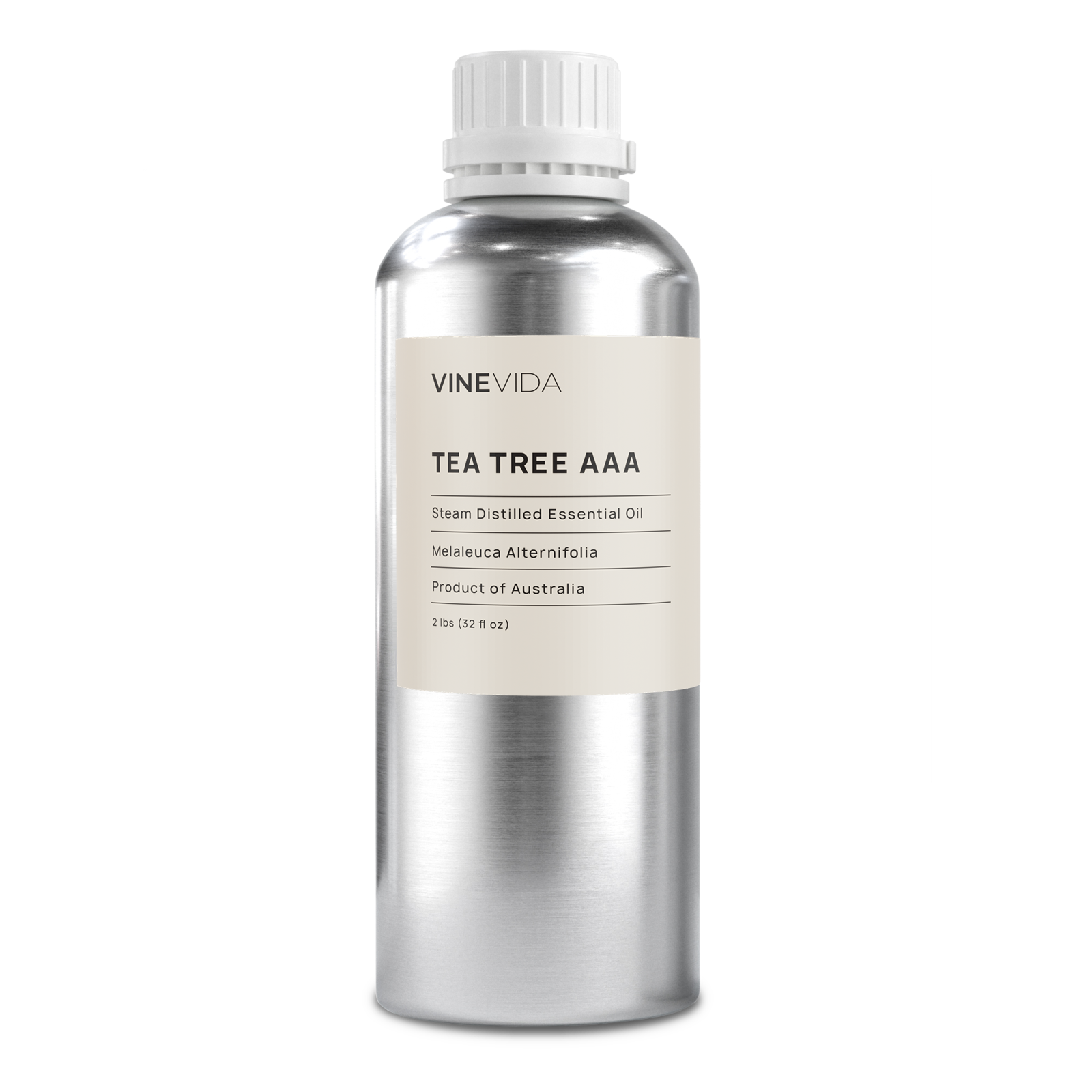
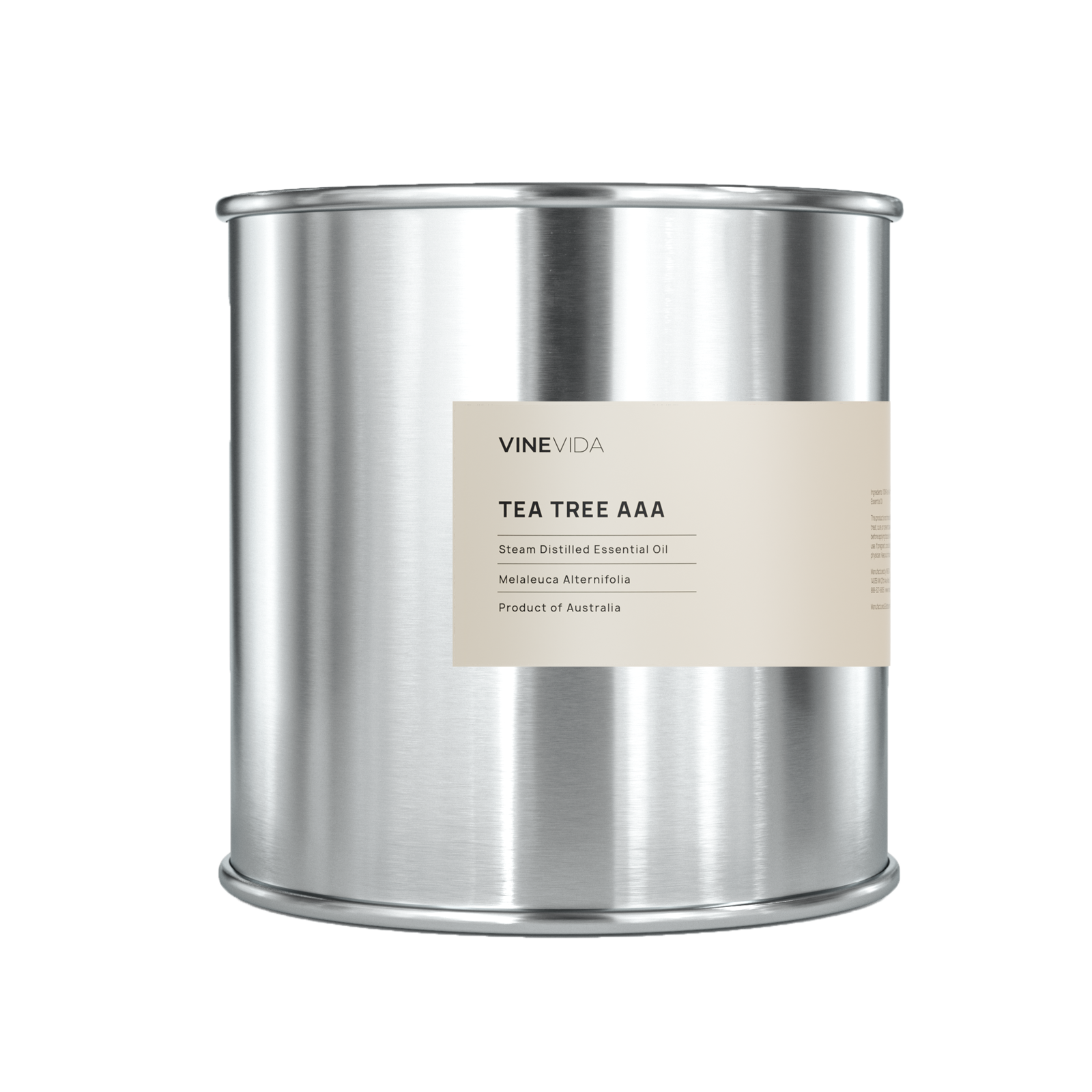
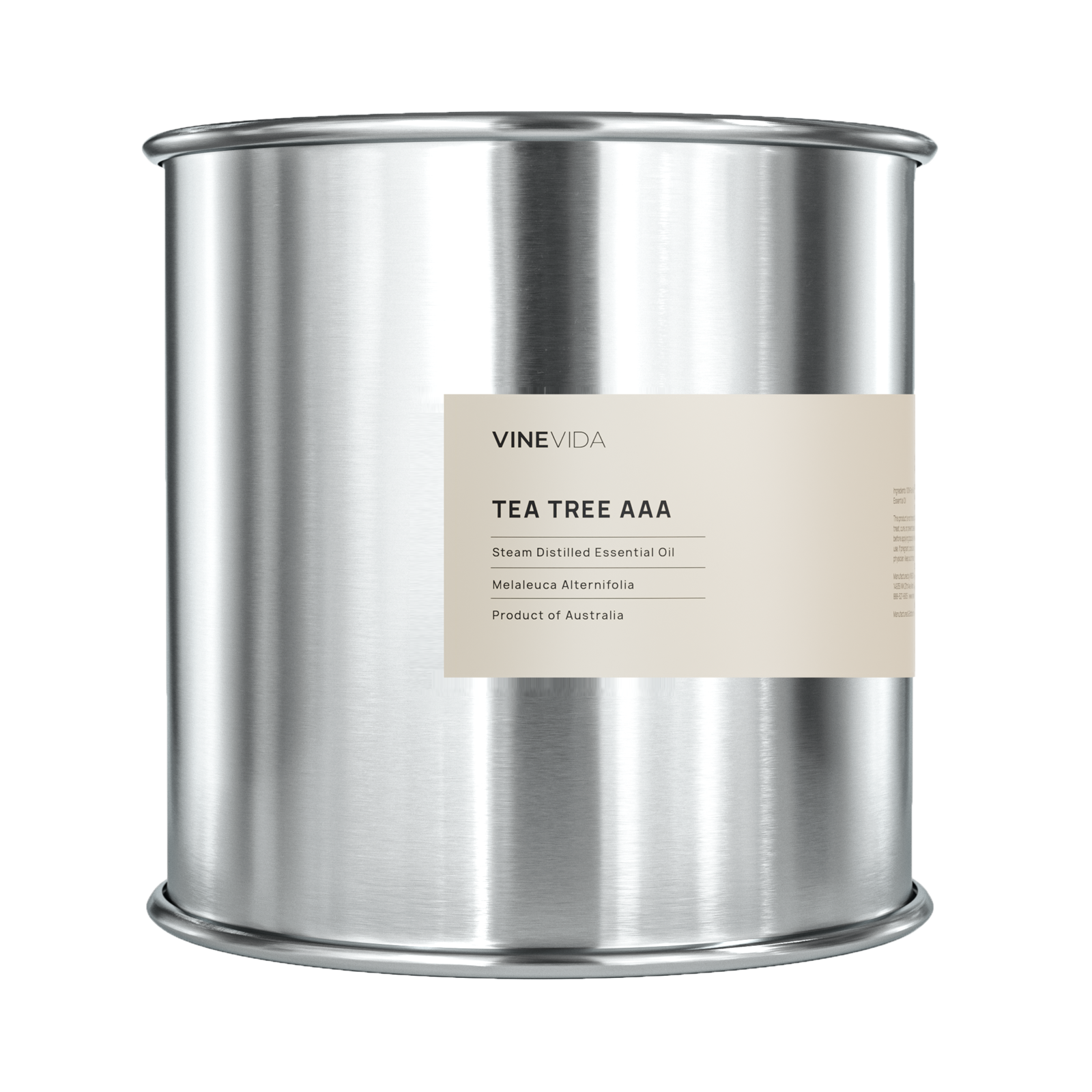
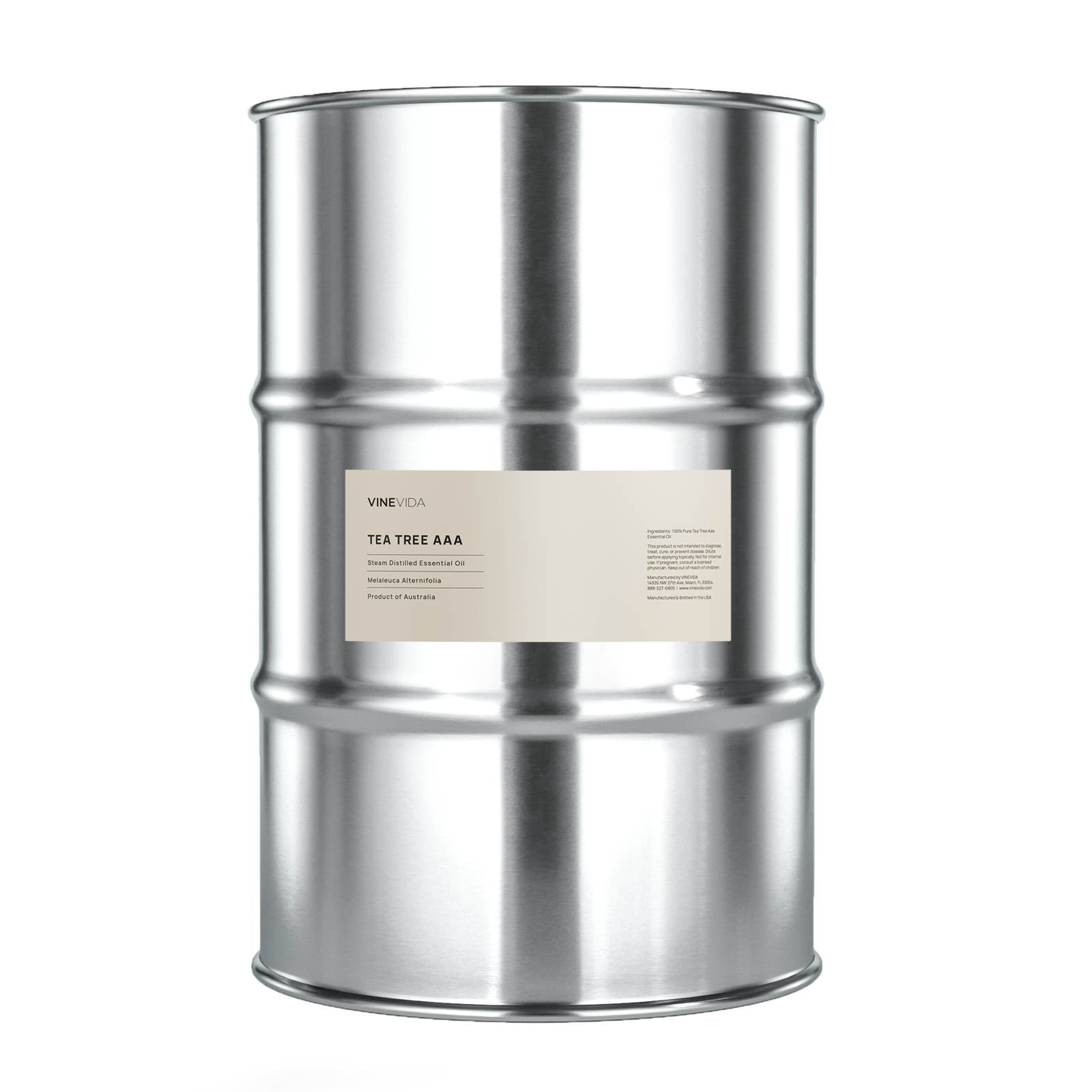





 Safety Data Sheet
Safety Data Sheet


















